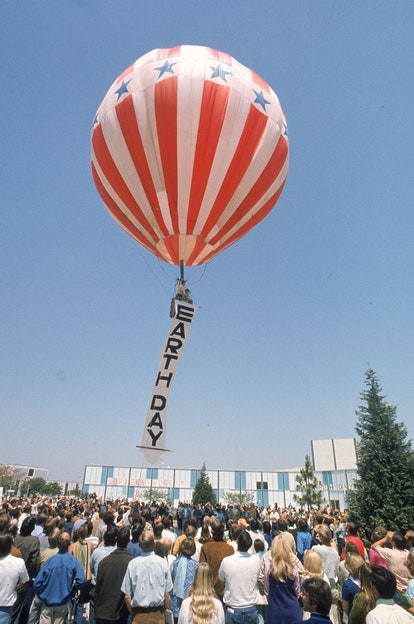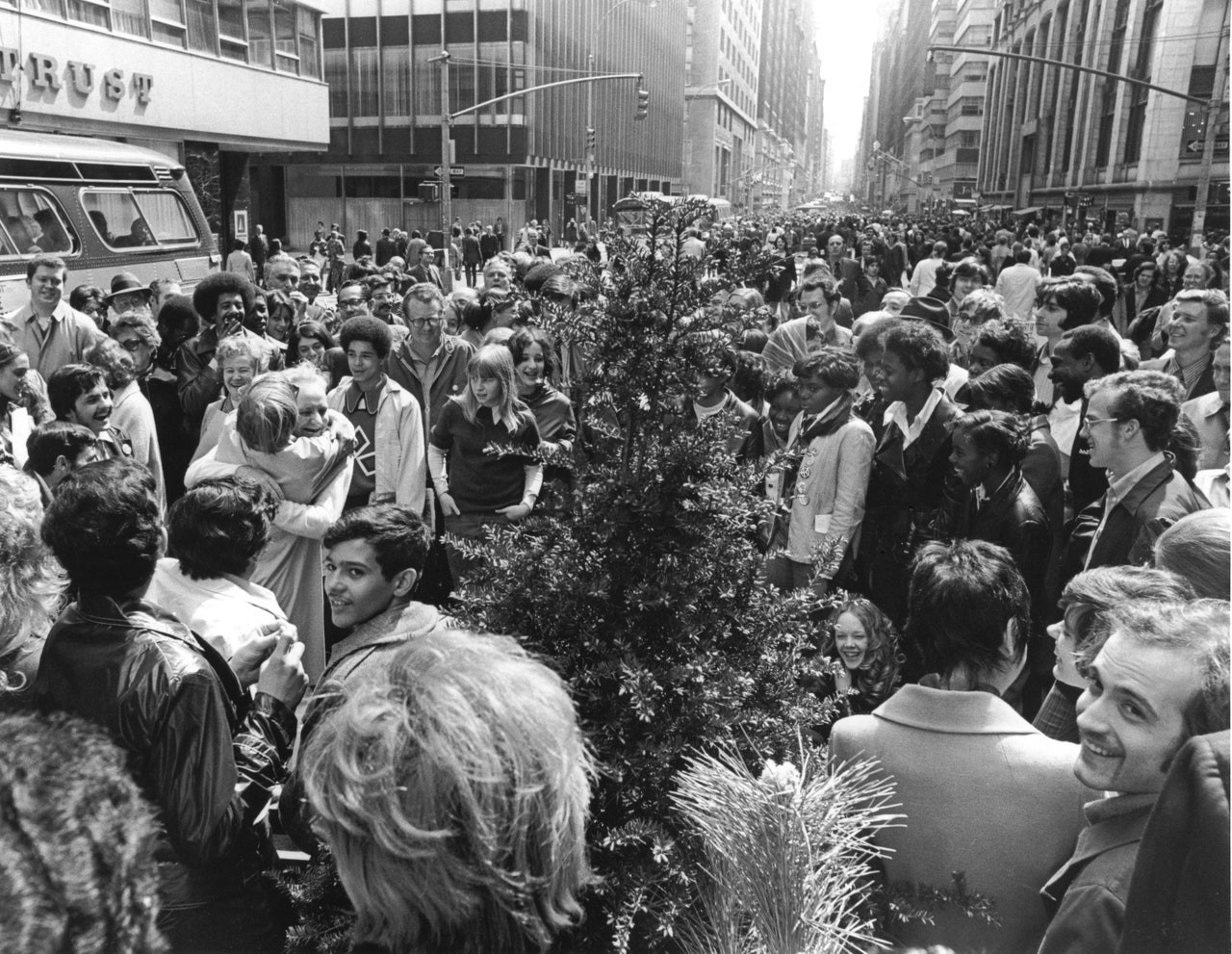Every April, millions of people around the world mark Earth Day to show support for the environment – here’s what you need to know.
As the climate crisis becomes ever more serious, each Earth Day that comes along takes on extra significance. Established in 1970 in the US, the annual event brings together millions of people from around the world in support of the environment, highlighting the urgent action we need to take to save our planet.
In fact, figures show that global CO2 emissions are now back at above pre-pandemic levels, despite all the talk of “nature healing” when countries around the world went into lockdown. Considering that we need to dramatically cut emissions by an estimated 45 per cent by 2030 to keep global warming to 1.5°C, the magnitude of the challenge we’re facing is clear.
“This Earth Day, we have an important opportunity to challenge our leaders to commit to climate action on a global scale,” Kathleen Rogers, president of EarthDay.org, tells Vogue. “We are at the edge of a cliff — if we don’t act now to reduce carbon emissions, there will be no way back.”
Want to ensure that you play your part this Earth Day? Here’s everything you need to know.

When is Earth Day 2021?
Earth Day has been marked on 22 April every year since its inception in 1970. This year, organisers are calling for three days of climate action, from 20 to 22 April, but expect the entire week running up to Earth Day – sometimes called Earth Week – to be a time when environmental issues take centre stage.
What is Earth Day about?
Marked by millions around the world, Earth Day is an annual event designed to shine a light on the serious environmental problems we’re facing, from the climate crisis to air pollution and deforestation. For Earth Day 2021, US president Joe Biden has invited 40 world leaders to take part in a virtual summit on 22 and 23 April to highlight the urgency for stronger climate action. The event will be live-streamed because of the pandemic.
When was the first Earth Day?
The original Earth Day was founded by US senator and environmentalist Gaylord Nelson in 1970 to highlight the importance of clean air and clean water, following a 1969 oil spill in Santa Barbara, California. The event saw an astonishing 20 million people across the US taking to the streets — around 10 per cent of the country’s population at the time.
Earth Day became an international campaign in 1990, when environmental activists asked one of the original organisers, Denis Hayes, to help create another event to spotlight the ecological challenges facing our planet.

What is this year’s theme?
Fittingly, this year’s theme is Restore Our Earth, which focuses not only on the need to reduce our impact on the planet as we recover from the effects of Covid-19, but also how we can play a role in repairing the damage we’ve done. “We must look at natural processes, green technologies, and innovative thinking that can make a lasting and transformative impact to restore our Earth,” Rogers says.
How can you take part in Earth Day?
There are thousands of events taking place, both online and in person (within local Covid-19 restrictions) — find out what’s happening near you via this map. Organisers have also produced a handy toolkit to help you get involved, whether that’s organising a teach-in to educate people on the challenges we’re facing or a clean-up, considering the increased pollution we’ve seen from single-use masks and gloves during the pandemic.
You can also tune into Earth Day Live 2021, a live-streamed event that will include workshops, panel discussions and a series of guest appearances (last year’s event featured the likes of actors Jane Fonda and Joaquin Phoenix).
What else can you do to help the planet?
Of course, at Vogue we believe that every day should be Earth Day, so it’s vital that we continue to take action throughout the whole year. If you want to find out more about the challenges we’re facing, here are the books to read, the documentaries to watch and the activists to follow.
Beyond that, here are some other ways you can live more sustainably, including being more conscious about what you buy, switching to renewable energy, flying less and eating less meat, fish and dairy. You can also join a local campaign group, write to your politicians and donate to environmental charities such as Greenpeace, 350.org or WWF.

